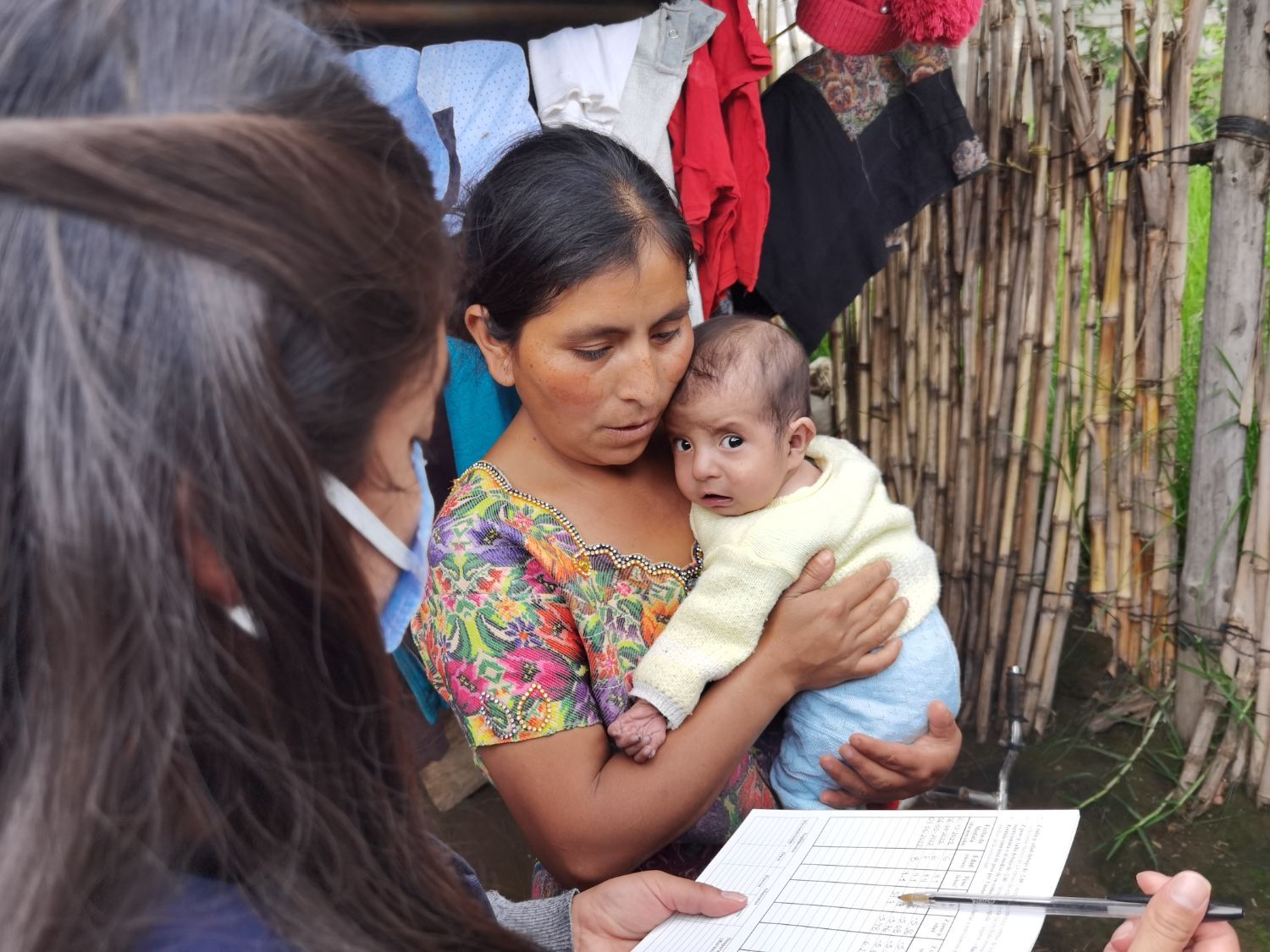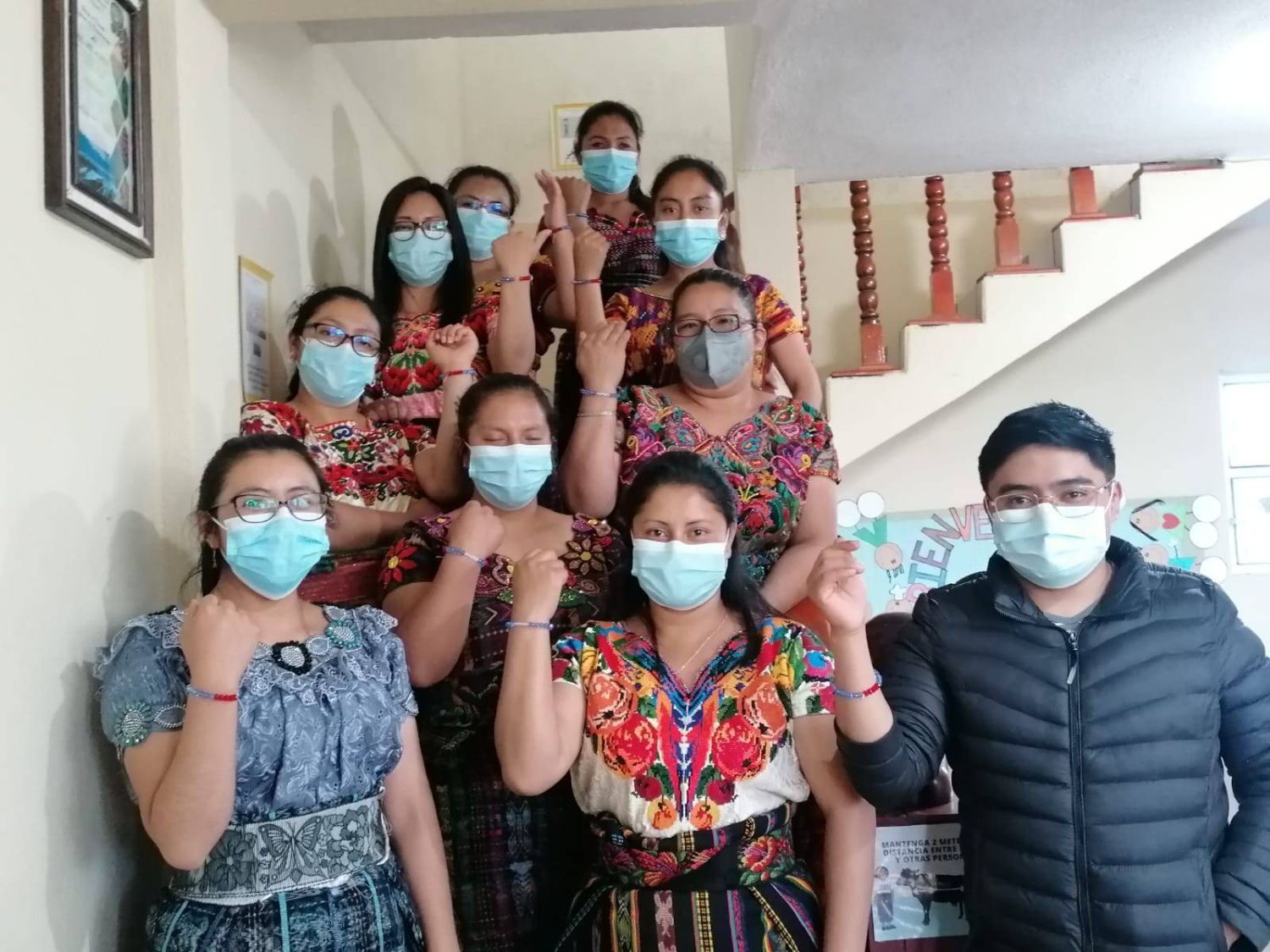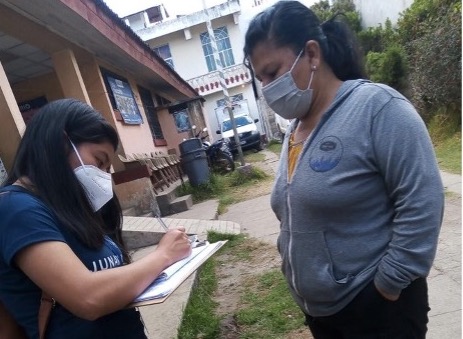| | Hello! Welcome to our summer 2022 newsletter! Thanks to you, our dedicated community, and to our resilient and determined team, we are staying strong through hard times in rural Guatemala. Food and energy prices continue climbing, as they are across the world, presenting new challenges for many families. The cost of a basic food basket has tripled, and gas is more than $5 a gallon here, consuming a sizeable portion of the monthly minimum wage of $300. Most of the families we work with bring in much less. Despite these many challenges, we have lots of great progress to report. Read on for more!  - Anne Kraemer, Executive Director |
| |
|
|  | PREPARING FOR HUNGER SEASON More and more, we are seeing children in rural Guatemala on the brink of falling from chronic malnutrition into acute malnutrition. In other words, they’re in danger of starving to death. This situation is likely to get worse in the coming months as we move into hambre estacional, or seasonal hunger. Every year from April through September, between harvests, families’ corn and bean reserves run out. At the same time, the rainy season arrives, bringing the threat of flooding, contaminated water, and diarrhea, and putting children at even greater risk. A recent government analysis from the Secretariat of Food and Nutritional Security (SESAN) indicated that more than a quarter of all families in Guatemala are likely to experience food shortages in the coming season due to rising prices for food, fertilizer, and fuel. Malnutrition can limit brain development and have lifelong consequences for a child’s health, education, and future prospects. So we are doubling down on our nutrition efforts, providing more substantial food supplements and adjusting our work with families to reflect the realities of the current situation. We are ever grateful for those who are supporting our Family-Centered Nutrition Program, which is more critical today than ever before! Want to take action? Go to RESULTS.org to urge Congress to pass legislation to help fight global hunger: https://results.org/issues/global-nutrition/ |
| |
|
|  | COMMUNITY HEALTH CLASSES ARE BACK, NEW & IMPROVED! Featured above are members of the team at Mil Milagros, an organization dedicated to leadership development and early childhood education, after completing our new Human Development class. The class in the Santa Lucía Utatlán area was the first we’ve been able to offer since the onset of Covid! We are thrilled to be able to resume the class and pilot our new curriculum, which we developed during the pandemic. We've expanded the former Women’s Health course to focus more broadly on human development to help mothers raise their daughters and sons as well as care for themselves. The revised course covers everything from anatomy and the menstrual cycle to fostering loving relationships. We offer the six-session course free of charge. Participants also can elect to receive cancer screenings and their choice of family planning method. On a related note, we are very pleased to announce two exciting additions to our family planning program - a women’s health nurse and a male peer counselor, who will focus on engaging male partners through classes, education, and counseling. Research shows that one of the primary barriers that women in rural Guatemala face in using long-acting contraception methods is resistance from their partners; the aim is to help open the conversation. It is wonderful to be back out in the field offering classes and meeting with more community members! |
|
|
 | USING SOCIAL MEDIA TO DEMYSTIFY COVID VACCINES Our Covid Vaccine Confidence study with researchers from University of California San Francisco and Stanford University’s Digital Medic is complete, and we came away with great appreciation for our partners and a better understanding of how to effectively communicate vaccine information to our patients. The goal of the project was to identify and address the main myths and misinformation that create doubts about vaccines in rural Guatemala and find ways to offer more accurate information. In a series of interviews in the towns of Patzún, San Andrés Semetabaj, Tecpán, and Sololá, researchers found the central concerns included mistaken beliefs that vaccines caused death and infertility, involved insertion of a microchip, and were against God’s will. In these conversations, researchers also explored barriers to receiving vaccines, such as a lack of basic information in Mayan languages. We then developed a series of social media videos in Spanish, K´iche’, and Kaqchikel that dispelled these myths and provided information about how to get vaccinated. After a social media campaign that targeted videos to select community members, the team reassessed beliefs and actions related to vaccines. The study showed that videos in Mayan languages seem to improve the perception of the safety of Covid vaccines and that those who had seen the videos were more likely to have been vaccinated. |
| |
|
| | BUILDING STRONGER FOUNDATIONS Our team is training non-profit colleagues to use the International Guide for Monitoring Child Development to better identify, prevent, and address problems with nutrition and help parents provide responsive, stimulating care to support their children's development. This is part of a NIH-supported research grant to understand the adaptation and implementation of this important guide in the Global South. Pictured here are the graduates of the pilot training - health promoters from San Lucas Tolimán who are among our long-time collaborators. |
|
|
| | | SHARE YOUR REVIEWS ON GREAT NONPROFITS! Help us keep our top rating on GreatNonprofits so that we are more visible for people who want to support our work. We need just a few more reviews. Go here to make a difference! |
|
|
| Thank you so much for your ongoing support! |
|
|
| | Maya Health Alliance | Wuqu' Kawoq
PO BOX 91 | Bethel, Vermont 05032-0091
513-393-9878 | development@wuqukawoq.org |
| | |
|
| |
|
|